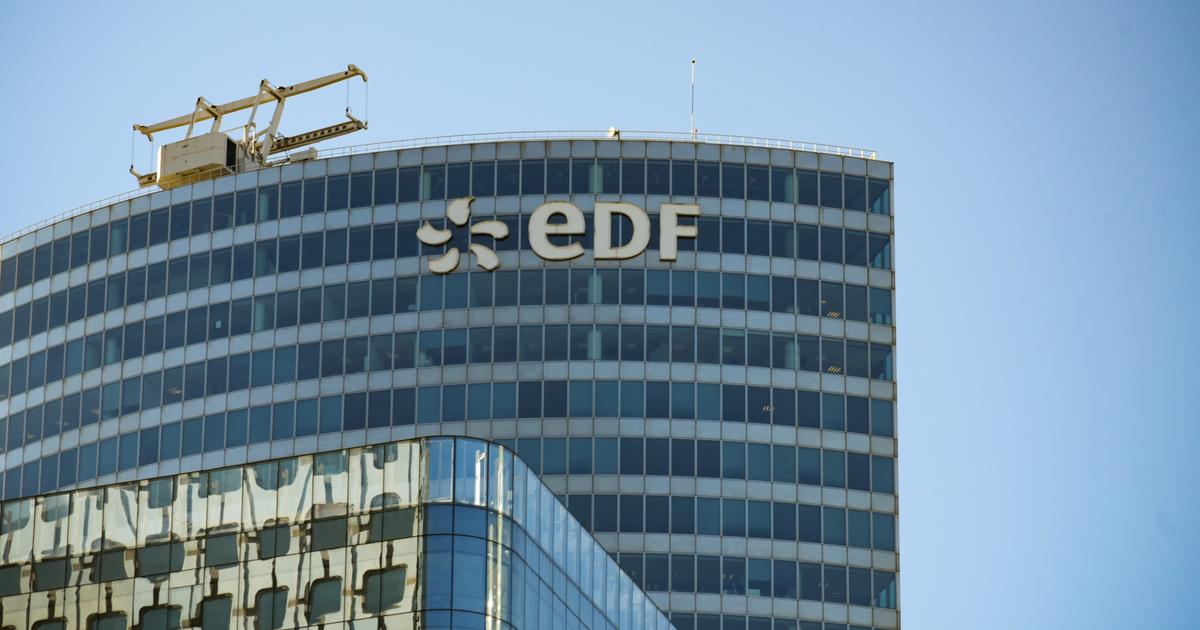Matt Brittin, Google's Head of Europe, Middle East and Africa, at an event in Portugal in 2018.NurPhoto / NurPhoto via Getty Images
Tech companies have emerged as the big winners from this crisis.
The lockdowns have accelerated the use of services by the ever-growing group of giants from the United States and China.
The EU continues to struggle to enter this global board while it intends to raise the demands on the giants through the new Digital Services law, whose proposal will be launched in December.
Google President for Europe, Middle East and Africa, Matt Brittin (Walton-on-Thames, UK, 52 years old), warns that the law will mean that European consumers give up some of their most popular services.
Question
.
Why are they afraid of the new European law?
Answer
.
I don't know if I would rate it that way.
We have the opportunity to lay the foundation for the next 20 years of innovation and strengthen the single market.
We have been operating with approved rules for two decades and the world has changed.
And this comes in the middle of the pandemic, which has taught us how digital tools can save our lives and keep businesses afloat.
And now they will be a catalyst for recovery.
P
.
Could you give me an example of a service that you could not offer under the new directive?
R
.
We have not seen the project, but we have the
input
of having participated in the consultation [carried out by the Commission].
For example, a simple service that has been key during the pandemic.
If you search for a Thai restaurant on Google, a map appears, the link to the place, the opening hours, the influx of people at that time and the possibility of calling or booking.
During the pandemic, many restaurants have updated these details through Google My Business, so that users can know if it has closed, if there are new hours or if they have to pick up the order.
If in the future we cannot combine services, we will not be able to provide it.
And it has allowed the user to better connect with their local businesses.
We know that in Spain, a third of people have bought in stores that they had not been to before.
Brussels presents its 'Digital Package', which will regulate the use of data and artificial intelligence
EU plans to force big tech to share their data with smaller rivals
P
.
Brussels maintains that it wants to know what they recommend and why.
Isn't it more of an exercise in transparency?
R
.
We are transparent.
Here we talk about not being able to combine services to, for example, use the data to know if public transport is full.
And we understand that people may have certain concerns and want to make sure that technology works for everyone.
But we believe that it is the opportunity not to restrict what is authorized, but to allow what is possible.
P
.
Would you say that the European Commission is protectionist?
R
.
Of course not.
I give you an example: the General Data Protection Regulation [GDPR, for its acronym in English], which protects consumers and gives some important principles for the control of our own data as users.
We support the core of the regulation: giving people the opportunity and transparency about the use of their data.
Then we can argue that it is implemented in a bureaucratic way, but we agree with the principles.
Legislation is an opportunity to find a path that protects the values we uphold, but also to foster innovation and growth.
P
.
Google is posited as an ally of local businesses, but it is a giant with almost no competition in the EU.
Who overshadows them?
R
.
We have done research that shows that about two-thirds of Europeans go to specialized search sites, applications or services first and not to a general search engine.
And less than a third of them start their searches for flights, hotels or shopping there.
If we examine our behavior as users, we see that there are more options and more competition.
This study tells us that 90% of users are happy with the search engine they use, but three out of four say that, if they don't like it, they look for another.
P
.
Barcelona and Paris have called not to buy on Amazon this Christmas.
Don't you think they see technology as a threat?
R
.
I don't go into specific names.
At Google we help the user to connect with their local business.
We only earn money when they earn it or connect with the client, when they derive value from the visit in some way.
P
.
He says they make money if local businesses do too.
And that is the reason why Spain or France want to set a digital rate if it is not achieved at the European or Community level.
What do you expect from these jobs?
R
.
We have seen that international tax rules are incredibly complicated and need to be reformed.
And we have encouraged global reform.
And there is a certain level of impatience because it has not arrived yet after several years and we are seeing various governments choosing to impose their own tax.
We prefer an international reform.
In the end, we want to make our contribution with the products and services we offer and we want to pay our fair share of taxes.
P
.
Everything indicates that the world is close to having a vaccine against covid-19.
Do you think that the tools and technologies that we have used to telecommute are going to stay?
R
.
It is difficult to know at all.
But we have seen maybe five years of change in five or six months.
For example, my 80-year-old parents made video calls to stay in touch with the family or shopped online.
Some habits that have changed will likely remain.
70% of Spaniards say they will buy more online.
In April there was a change in habits that have lasted long enough to persist.
And the same goes for the technological skills acquired, which must be part of the recovery.
"Quality content must be compensated"
P. The European Commission wants there to be more control of illegal content by gatekeepers (who give access to information) such as Google.
Do you agree?
R. We do not wait for the laws.
We take our responsibility very seriously.
PR First, you have to make sure that quality content is rewarded.
We have worked with advertisers and we try to reward that content by helping to monetize websites.
And during the pandemic, in fact, we have deployed an emergency fund to alleviate the crisis in small publications that could not sell physical copies.
And on the other hand, we also have to address illegal or harmful content or misinformation.
And we continue to try to put policies in place to help us do so.
We have come a long way on issues like violent extremism.
The work never ends, because there are always new things.
There are things that are clearly illegal.
And others that are not, but are potentially harmful.
And on that we work with experts or incorporating part of the EU Code of Conduct on hate speech.
Q. What relationship do you have with Vice-President Margrethe Vestager and Commissioner Thierry Breton, especially after 'Le Point' uncovers how they try to put pressure on the Commission?
R. I have not seen that information to which the press refers.
We want to have a constructive dialogue with legislators.
And it is what we will try to continue having.
Regardless of what is published in the press, we have been transparent, and for example we have published the 135 pages of the requirements related to the consultation on the Digital Services law.

/cloudfront-eu-central-1.images.arcpublishing.com/prisa/DCH2AAHWNBCR7FWZQFOZZ3XPZQ.jpg)













